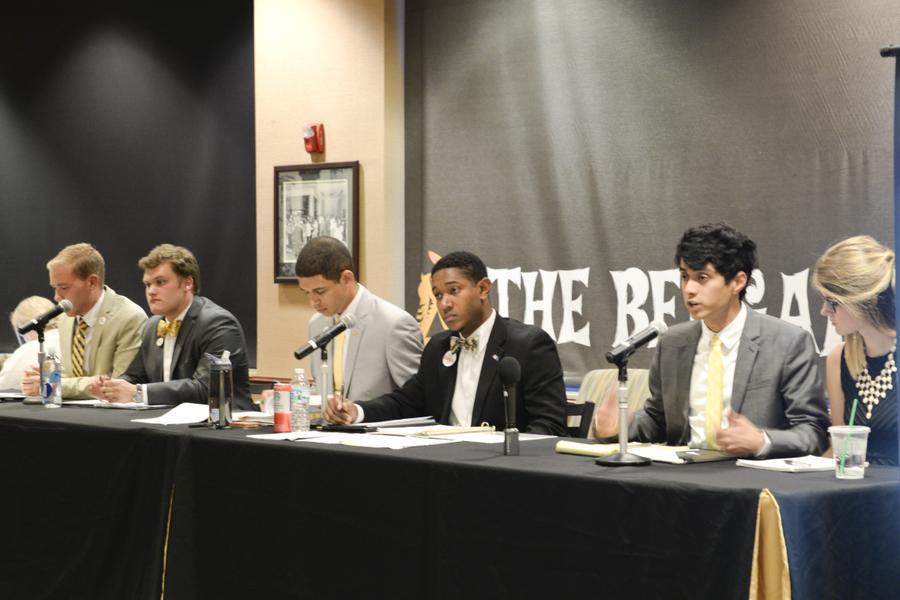The three pillars Serve, Belong and Challenge on Syed Ejaz and Heather Parrie’s platform Mizzou Together each have a social justice component. Through MSA’s influence, they would set a socio-cultural leadership standard for leaders all over campus for speaking out against discrimination, social inequality and sexual violence.
They want to improve the mental health climate by partnering with Active Minds, the Missouri International Student Council and the Mizzou Suicide Prevention Coalition. In addition, they would promote student activist activities that include safe and educational programming such as the LGBTQ Resource Center’s Coming Out Week to students who may be unaware of the resources available.
They would also speak with administration about adding a mandatory diversity general education class.
Ejaz said he is in favor of a modified version of the diversity training for students.
“I don’t think that the online training in MyZou can set the normative culture appropriately,” Ejaz said.
Ejaz said as far as he knows, the students have not been consulted by the administration as to what should be included in the diversity training. Staying in line with the Challenge pillar of their platform, Parrie said if they do not get a say in what the training will entail, they want to change it .
“Student input in things like this is important because the one thing MSA and the student body will have over the administration is that we are the students and we will always understand student issues better than the administration,” Ejaz said.
Parrie said she would like to hire more staff and increase the amount of sessions students get at the MU Counseling Center. In addition, she also wants to increase awareness of the Disability Center and the accommodations it can make for students in classes.
She also wants to work with the Behavioral Health Center to create a way for students to make their appointments online, increasing accessibility to their services.
“I think that [the current method] is a huge deterrent for students who want to get help but are scared to,” Parrie said. “You have to physically call, speak with someone and tell them that you are feeling depressed.”
Ejaz said DACA is an excellent program and those who qualify for it should be eligible for admittance into a university.
He said they would like to work with the admissions office and ensure that the students affected have a voice. It is their obligation to reach out to everyone so they can acquire knowledge and perspective to advocate on their behalf effectively, he said.
“There is so much that we don’t know about what students need,” Parrie said. “And there is no way we can know the state of every student and what every student needs from MSA. That is why it is important for us to make sure that we are reaching out to the students that we don’t know a lot about and continuing to make sure that their voices are heard.”
From the time he began school at MU, Ejaz said MSA did not see itself as an advocacy organization and focused more on the budget. MSA needs to contribute to giving the student-led initiative communities a voice, he said. They should be unafraid to take a stance on issues because they matter.
“Advocacy is a huge part of what MSA should be doing,” Ejaz said. “Payton really helped change the advocacy culture within MSA, especially with the rise of so many salient social justice issues. MSA has just now begun to find its role in those conversations.”
Ejaz said sitting down with student leaders in different communities is important because a lot of communities on campus don’t talk to each other that much. If they do sit down, he said, “the tone is not conducive to a productive outcome.”
“The MSA President and MSA can be a bridge for those communities,” Ejaz said. “If we all sit down, roll up our sleeves and ask ‘what is it we can do as student leaders to make the culture in our various communities less problematic, more empowering and more safe?’ That is advocacy. That is working with people. That is bringing Mizzou together.”








